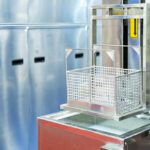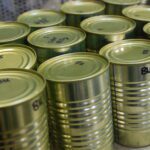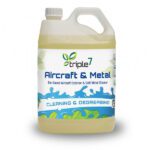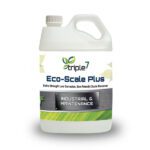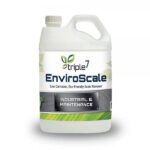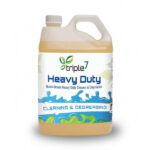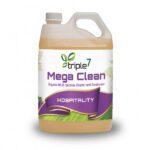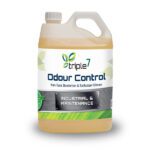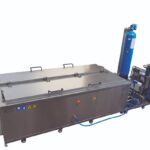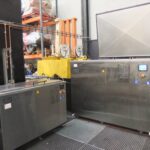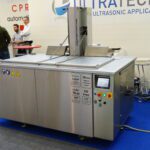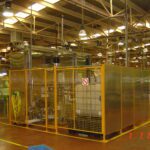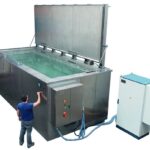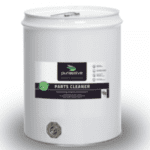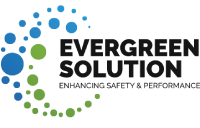Cleaning in place (CIP) is the process of cleaning the interior surfaces of process equipment without disassembling them. In many food and beverage industries, this is the primary method for cleaning process equipment due to the potential for cross-contamination if cleaned manually.
CIP systems typically use a variety of chemical cleaners, sanitizers, and water to clean process equipment. However, the traditional chemical cleaners used in CIP systems can be corrosive, toxic, and hazardous to the environment. As a result, there is an increasing interest in bio based cleaners for CIP systems.
Biobased cleaners are derived from renewable resources, such as plant-derived surfactants, and are designed to be non-toxic, biodegradable, and environmentally friendly. In addition, biobased cleaners can be just as effective – or even more effective – than traditional chemical cleaners.
Table of Contents
The drawbacks of chemical cleaners in CIP systems
The conventional cleaning practices utilized in CIP systems have been entrenched for years due to their perceived cost-effectiveness and effectiveness at removing pathogens and soils. Yet, many of the commonly used chemistries are far from sustainable – they depend upon finite resources, require significant energy and water inputs, and can be damaging to the environment.
In addition, most of these traditional cleaners used in CIP systems are outdated, relying on legacy technology and outdated equipment. Furthermore, they are often difficult to control, with cumbersome manual processes that often lead to ineffective cleaning. These traditional methods can be labor-intensive, taking hours to run a cycle and leaving residues behind that can be difficult to remove. These inefficiencies also lead to an increased amount of money spent on repeated cleaning the same equipment.
The benefits of bio-based cleaning chemicals
In recent years, there has emerged a growing interest in biobased chemistries for CIP cleaning. Biobased cleaners are derived from renewable resources, such as plant-derived surfactants, and are designed to be non-toxic, biodegradable, and environmentally friendly. Biobased chemistries offer a number of advantages in terms of cleaning performance, ease of use and overall sustainability.
For instance, biobased chemistries are designed to effectively remove dirt, debris, and other pathogenic agents, while also being gentle on the environment and reducing the overall energy and water usage. In addition, these chemistries can be stringently controlled to ensure optimal performance, with automated processes and cleaning results that are traceable. These factors make bio based cleaning chemicals just as effective – or even more effective – than traditional chemical cleaners.
Bio-based cleaners with Food Grade HACCP Certifications are also available for The Diary, Food Packaging, Brewery, Beverage, Agricultural, Fruits & Vegetable and SeaFood Industry. The HACCP certification of the cleaners helps streamline the multiple steps in the CIP systems and in turn bring down the cost of cleaning. Industrial CIP Cleaning Applications of Boiler Maintenance, Heat Exchanger Cleaning, Cooling Coil Cleaning, Chiller Cleaning , Cooling Tower Maintenance are the other areas that can benefit.
How to efficiently switch to biobased chemistries :
Making the switch to bio-based chemistries is not as daunting a task as it may initially seem. Many food and beverage industries are already starting to adopt biobased chemistries due to their improved cleaning performance and sustainability benefits. The first step is to evaluate the current cleaning processes and the types of chemistries being used. Once the current cleaning process is understood, it is important to identify the objectives of the cleaning process and the desired cleaning outcomes. This will help select the type of bio-based cleaner that should be used and the necessary equipment to achieve the desired outcomes. Once the bio-based cleaner is identified, the next step is to ensure the system is set up properly to ensure optimal performance. This includes optimizing the chemical, equipment and water usage, as well as the temperature and flow rate of the system. Finally, it is important to regularly evaluate the system and adjust parameters as required.
The 4 options of bio-based cleaning chemicals are:
- Oleo Derived Cleaners : Natural Oil based cleaners are not just powerful, but also extremely safe for use and easy to dispose of. It is free of allergens and toxic ingredients.
- Biosurfactant Chemistries: Derived from a fermentation process, similar to brewery production, the biosurfactants offer high standards of performance and safety for CIP cleaning.
- Enzymes Products: Powerful and safe enzymatic complexes are available off the shelf, but validation is required for efficacy and disposal.
- Colloidal Cleaners: As innovative and next generation cleaners, the Colloidal degreasers, sanitisers and acid replacement complexes are the future of cleaning. You can refer to the following blog for more information.
Why now is the time to switch to biobased chemistries:
Cleaning in place is a critical process in food and beverage manufacturing, but the traditional chemical cleaners used in CIP processes are far from sustainable. As a result, making the switch to biobased chemistries is becoming increasingly important for those wanting to reduce their environmental impact. Now is the perfect time to make the switch, as biobased chemistries offer a number of advantages over traditional chemistries. These include improved cleaning performance, ease of use, and reduced environmental impact through significant reductions in energy and water usage. Additionally, biobased chemistries can help meet consumer standards and provide flexibility in terms of cleaning performance.



